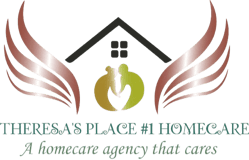You might notice subtle changes in your aging parent’s daily routine, and it’s important to pay attention to these signs. When personal hygiene slips or medications are mishandled, it might be time to contemplate home care options. Observing increased forgetfulness, mobility issues, or signs of social withdrawal can be concerning. These signs suggest they may need extra support to guarantee their safety and well-being. Discover how to address these changes effectively.
Changes in Personal Hygiene and Grooming
Have you noticed subtle shifts in your loved one’s personal hygiene or grooming habits? It’s common as people age to experience changes in their grooming routines, often signaling a need for additional support. You might observe less frequent bathing, unkempt hair, or neglected nail care, all of which can indicate difficulty maintaining their usual hygiene standards. These changes can stem from physical limitations, cognitive decline, or even emotional challenges. Recognizing these signs early is vital. It allows you to address underlying issues and explore options for assistance. By staying attentive, you can guarantee that your loved one maintains their dignity and health. If needed, consider professional home care services in Essex County to provide the support they deserve.
Difficulty Managing Medications

You might notice that managing medications can become challenging, with missed dosages or instances of overmedication becoming more frequent. It’s understandable if there’s confusion with medication instructions, especially when they’re complex or numerous. Helping organize pill schedules can make a significant difference, ensuring safety and peace of mind.
Missed Dosages and Overmedication
When was the last time you checked the medication schedule for your loved one? As they age, keeping track of multiple prescriptions becomes challenging, increasing the risk of missed dosages and overmedication. It’s essential to guarantee they’re taking the right medication, at the right time, and in the correct amount. Utilizing medication reminders and dosage tracking tools can help manage this responsibility effectively, preventing potential health complications. Consider setting up a system that includes alarms or apps to remind them when it’s time for their next dose. Regularly reviewing their medication plan with them can make a difference. If these tasks become overwhelming for you or your loved one, it might be time to explore professional home care options in Essex County.
Confusion With Medication Instructions
How often do you find yourself puzzled by the myriad of medication instructions? You’re not alone, especially when it comes to your aging parent. As they juggle various prescriptions, confusion can easily arise, leading to missed doses or incorrect usage. It’s vital to guarantee they receive proper medication reminders and understand their regimen. This is where effective caregiver communication becomes essential. A compassionate caregiver can bridge the gap, providing clarity and reassurance. They can explain instructions in simple terms and guarantee that medications are taken as prescribed. By fostering open dialogue, you can alleviate medication-related stress for your loved one. Recognizing these signs early guarantees they receive the support they need, promoting their well-being and maintaining their independence.
Organizing Pill Schedules
Managing a complex pill schedule can be intimidating, especially for those who are balancing multiple medications. You might notice your aging parent struggling to remember which pills to take and when. This is where pill organizers and medication reminders can make a significant difference. Pill organizers help sort daily doses by day and time, guaranteeing the right medication is taken at the right moment. Pair these with medication reminders—like alarms or smartphone apps—to prompt timely consumption. It’s essential to regularly check and refill these organizers to avoid missed doses. If your parent continues to face challenges despite these aids, it might be time to contemplate professional home care assistance in Essex County to secure their health and safety.
Decreased Mobility and Balance Issues
As individuals age, subtle signs like decreased mobility and balance issues can often go unnoticed, yet they play an essential role in determining the need for home care. You might notice your parent struggling with decreased strength, making everyday tasks more challenging and increasing the risk of falls. It’s vital to pay attention to these changes, as they can signal the need for additional support. Encourage your parent to engage in balance exercises to maintain stability and improve overall strength. These exercises can be simple and adapted to their abilities, helping to enhance their confidence and independence. Professional home care can provide the necessary support, ensuring your parent remains safe and comfortable in their familiar environment.
Unexplained Weight Loss or Poor Nutrition
If you’re noticing unexplained weight loss in your loved one, it’s important to regard it as a possible sign of poor nutrition or underlying health concerns. Look for indicators like changes in appetite, fatigue, or visible muscle loss, as these can point to nutritional deficiencies. Addressing these issues promptly can help guarantee their well-being and may indicate a need for home care support.
Signs of Weight Loss
Unexplained weight loss can be an alarming sign that something isn’t quite right at home. It may indicate that your aging parent is struggling with weight management or not maintaining proper nutritional habits. Understanding what’s happening can help you decide whether home care might be necessary.
| Observation | What to Look For |
| Clothing Fit | Clothes becoming loose |
| Meal Patterns | Skipping meals often |
| Pantry Check | Expired or missing food |
| Physical Appearance | Noticeable thinness |
If you notice their clothes are suddenly loose, or if meals are frequently skipped, these could point to underlying issues. Regularly check their pantry for expired items and observe any physical changes. Being proactive can guarantee your loved one receives the care they need.
Nutritional Deficiency Indicators
Spotting nutritional deficiency indicators is vital in maintaining your loved one’s health and well-being. Unexplained weight loss or signs of poor nutrition can suggest that your aging parent might need extra support. Pay attention to subtle changes like decreased appetite, fatigue, or a lack of interest in food. These may indicate underlying issues that require attention.
Conduct regular nutritional assessments to identify specific deficiencies. Collaborate with healthcare professionals to guarantee thorough evaluations. Effective meal planning is essential to address these deficiencies, providing balanced, nutrient-rich meals customized to your parent’s needs. You can prevent potential health problems by staying vigilant and proactive, enhancing their quality of life. If necessary, consider home care options in Essex County to provide the additional support they might need.
Increased Forgetfulness or Confusion
When your loved one begins to exhibit increased forgetfulness or confusion, it can be a concerning and emotional experience for everyone involved. Memory lapses might seem minor initially, but they can indicate the onset of cognitive decline. You may notice your parent struggling to recall recent conversations or appointments. They might misplace everyday items more frequently or become easily disoriented in familiar settings. These changes can be subtle but significant.
It’s essential to recognize these signs early. If left unaddressed, they could impact your loved one’s safety and well-being. Engaging a professional home care service in Essex County can provide the support they need, ensuring they remain in a safe, familiar environment. Caring for their evolving needs can make a profound difference.
Signs of Depression or Social Withdrawal

Although it can be challenging to recognize, signs of depression or social withdrawal in your loved one are critical to address. Emotional distress can manifest in subtle ways, but paying attention can make a difference. Social isolation often exacerbates these feelings, leading to a cycle that’s hard to break. Watch for these signs:
Signs of depression or social withdrawal are subtle but important to recognize and address.
- Loss of interest in activities they once loved.
- Frequent mood changes, such as irritability or sadness.
- Withdrawing from social interactions, avoiding family and friends.
- Expressing feelings of hopelessness** or worthlessness.
Your empathy and understanding are essential. Engaging your loved one in conversation, encouraging social activities, or considering professional support can help alleviate these symptoms. Recognizing these signs early can enhance their quality of life and well-being.
Neglecting Household Maintenance and Chores
As you observe emotional changes in your loved one, you might also notice their home environment beginning to suffer. A once tidy space may now show signs of neglect. Their cleaning habits might change, and tasks that used to be routine, like vacuuming or dusting, are left undone. You might find clutter piling up, disrupting the home organization they once maintained. This shift could indicate your parent is either physically struggling or emotionally overwhelmed, affecting their ability to keep up with chores. It’s important to approach the topic with sensitivity. Discussing these changes with them can help you understand their situation better and determine if they need assistance. Home care in Essex County could provide the support they require.
Safety Concerns and Frequent Accidents
If your loved one is experiencing safety concerns and frequent accidents at home, it’s important to address these issues promptly. Falls are a significant risk for seniors, and taking proactive steps for fall prevention can make a big difference. Consider home modifications to create a safer living environment. Simple changes can go a long way in preventing accidents.
- Install grab bars in the bathroom and near stairs to provide extra support.
- Remove tripping hazards** like loose rugs or cluttered pathways.
- Ensure proper lighting throughout the home to improve visibility.
- Consider non-slip mats** in areas prone to moisture, like the kitchen or bathroom.
Frequently Asked Questions
How Can I Talk to My Parent About Needing Home Care?
Approach your parent with an open conversation, ensuring you provide emotional support. Express your concerns lovingly and listen to their feelings. Emphasize that home care is about enhancing their quality of life, not diminishing independence.
What Financial Options Are Available for Home Care Services?
You’ve got several financial options for home care. Look into Medicare coverage and long-term insurance policies. Consider financial aid programs and asset protection strategies to ease costs and guarantee your parent’s well-being without overwhelming your family’s resources.
How Do I Choose a Reliable Home Care Provider?
To choose a reliable home care provider, start with home care assessments. Make certain caregivers have the right qualifications and experience. Check references, read reviews, and trust your instincts. Your parent deserves compassionate, professional support customized to their needs.
Can Technology Assist in Monitoring My Parent’s Well-Being at Home?
Yes, technology can help monitor your parent’s well-being at home. Remote monitoring systems and health apps provide real-time updates, ensuring you stay informed about their health status, increasing peace of mind and enhancing their safety.
What Legal Considerations Should I Be Aware of When Arranging Home Care?
When arranging home care, you should understand your legal responsibilities. Draft clear caregiver agreements to outline duties, payment, and confidentiality. Consult with a legal expert to guarantee compliance and protect your parent’s interests. It’s essential for peace of mind.
Conclusion
Taking care of your aging parent is challenging, but recognizing the early signs that they need home care can make a big difference. By staying attentive to changes in their hygiene, medication management, mobility, and cognitive function, you can guarantee they get the support they need. Don’t ignore signs of depression, social withdrawal, or neglect of household chores. Theresa’s Place #1 Homecare can help by providing compassionate, professional assistance tailored to your loved one’s needs, ensuring their safety, comfort, and dignity at home. Prioritizing their well-being with trusted care not only enhances their quality of life but also gives you peace of mind knowing they’re in capable hands.

